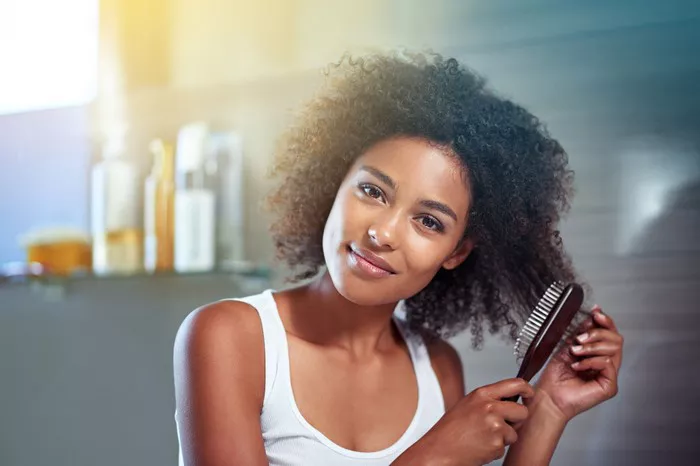In the early 2000s, British singer Jamelia rose to fame with her hit single “Superstar,” showcasing a style that epitomized Black British noughties fashion, complete with low-rise jeans and bone-straight hair. Reflecting on her early career, Jamelia acknowledges that embracing her natural hair wasn’t a viable option at the time. In an email to Refinery29 Unbothered, she explains, “As a young woman, I didn’t embrace my natural texture because I didn’t see anyone else doing it; there was a lack of representation around me and in popular culture.”
The landscape has since evolved, with the natural hair movement gaining momentum. However, for those who grew up before the movement’s emergence, like Jamelia, the journey to embrace afro hair textures was marked by misinformation, internalized texturism, and insecurities. Recent research by SheaMoisture reveals generational differences, indicating that Black and mixed heritage women over 45 are more likely to conform to societal pressures regarding their hair compared to their 18-21-year-old counterparts.
SheaMoisture’s study underscores the transformative impact of the natural hair movement, noting that younger Black women today are significantly more confident wearing their natural hair. This shift is attributed to increased representation and a broader acceptance of diverse hair textures. Despite progress in the Black hair care industry and improved media representation, historical challenges persist, as Black hair has long been politicized and scrutinized.
Jamelia, now in her 40s and a mother of four, shares her personal transformation in Shea Moisture’s ‘Same Roots, New Rules’ campaign. Through a poignant photo series, the campaign captures moments of Black mothers and mother figures embracing their natural hair, symbolizing the dream hairstyles they felt discouraged from wearing in their youth due to hair discrimination. Jamelia emphasizes the importance of fostering a positive relationship with natural hair from an early age, inspired by her daughters.
SheaMoisture’s survey indicates that 72% of Black women over 45 believe there is a more positive representation of afro and textured hair in the media today. Despite this progress, challenges like hair discrimination in schools and workplaces persist, indicating that more work needs to be done. However, the prevailing sentiment suggests that obstacles hindering Black women’s self-expression are diminishing, regardless of age or hairstyle choice.
The article concludes by drawing attention to the changing narrative around natural hair, citing Blue Ivy’s journey from being scrutinized as a baby to confidently wearing her afro hair in various styles. The author expresses optimism for the future, highlighting the need to unlearn harmful lessons about hair and ensure a positive legacy for the next generation. Loraine Frimpong, Shea Moisture’s Assistant Brand Manager, emphasizes the importance of shedding light on the evolving relationship between mothers and daughters and celebrating the newfound confidence of women with afro and textured hair.


